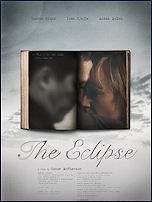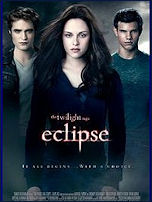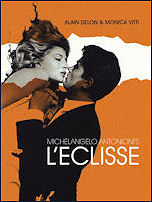Ridley Scott‘s Robin Hood (Universal, 5.14) will open the 63rd Cannes Film Festival with screenings on Wednesday, May 12th. Non-competitive, strictly hoopla. The period actioner costars Russell Crowe, Cate Blanchett, Max Von Sydow, Lea Seydoux and William Hurt. Robin Hood will open commercially in France on the same day, and in the US two days hence.
Reverse Order
Daniel Barber‘s Harry Brown, the Michael Caine-as-Clint Eastwood flick (i.e., like Gran Torino only less compassionate), opens theatrically on 4.30. And the British Bluray has been purchasable on Amazon since 3.22.

Passing of Torch
Like I said in my 3.16 Hot Tub Time Machine review, “the real breakout is Rob Corddry, who plays the wild-card wildass in the group of four (John Cusack, Corddry, Craig Robinson, Clark Duke) who visit a broken down ski resort and travel back to their youth in the mid ’80s ,” etc. So Philadelphia Inquirer critic Carrie Rickey has it right — Corddry is “the new Zach Galafianakis.”
Multiple Choice
Quickly and without thinking — which Eclipse movie seems slightly cooler, grabbier, more substantial, more erotically intriguing? If you’ve chosen the middle poster you’re obviously a knee-jerk Eloi ready to plunge once again over the lemming cliff on 6.30. If you went with the left you’re probably afflicted with the indie-preferring, adult-subject disease that afflicts audiences over 30. And if you chose the right-side poster you may have a Masters in Film Studies from NYU or Columbia.



The poster on the left is for Conor McPherson’s The Eclipse, a nicely shaded adult ghost story that opens on 3.26.
My Dead Wife
Conor McPherson‘s The Eclipse (Magnolia, 3.26) doesn’t broadly signal that it’s a creepy ghost story, but when the scary moments happen they pay off on a level that conventional thrillers miss because they’re playing a more obvious game. It’s certainly worth seeing for this unusualness, and for the sturdy lead performance by the great Cieran Hinds, who always brings all kinds of inner currents to the table.
At times the spook-outs feel like similar moments in Jack Clayton‘s The Innocents, which are my favorite kind.
It’s got a couple of issues (one being a boozing, boorish writer played by Aidan Quinn, whose presence wears very thin by the end) but it’s far from a bust and in no way a burn. So I’m not quite understanding the 63% positive Rotten Tomatoes rating, which is a failing grade by high-school quiz standards. The Eclipse is more 80% or even 85%. It’s a better-than-decent Irish ghost story so whaddaya whaddaya?
I did a little phoner with McPherson and Hinds a couple of weeks ago, and have been putting off writing up their quotes because I hate writing up interviews because it takes too much time and effort. It gives me a headache on top of everything else. I’ll post a video or audio recordings with a four- or five-graph intro but that’s as far as I go these days. Especially when it’s the late afternoon (as it is now). But I’ve posted this and the Eclipse tryptich thing (above) so I’ve covered things for now.
The Fire Next Time
It was announced today that the 2010 Oscar telecast will air roughly a week earlier than the ’09 awards did — on Sunday, 2.27.11. More or less the same deal all around.
And nobody is foolish enough to venture a guess which contender might win the Best Picture Oscar? I’m going to stick my neck out and say it’ll be either Chris Nolan‘s Inception (payback for Dark Knight snub), Doug Liman‘s Fair Game (a 21st Century All The Presdient’s Men?) , David Fincher‘s The Social Network (the GenX/GenY Treasure of Sierra Madre), or Alexander Payne‘s The Descendants (if he finishes it in time).
Beck Blather
What isn’t here, obviously, is a “yea” or “nay” regarding James Cameron‘s debate challenge. Beck surely knows what the consequences will be if he wusses out.
Another Movie-Star Thief
All I ask is that when Hollywood or HBO makes a film about Gerald Blanchard, the brilliant Canadian thief recently profiled by Wired‘s Joshuah Bearman, that they don’t let Steven Spielberg anywhere near it. He’ll just screw things up with too much sentiment or bad casting or whatever. Blanchard + celebrated Keyser Soze-like teenaged criminal Colton Harris-Moore makes two sociopaths enjoying media glare over the last couple of days.
Pope Should Resign
What a rancid stench is emanating yet again from the Catholic Church, and particularly from the chambers of Pope Benedict XVI himself in the wake of Laurie Goodstein‘s N.Y. Times story that Catholic Big Guy #1 shielded a Wisconsin-based child-molesting priest in the mid ’90s in order to avoid a public scandal.
“Top Vatican officials — including the future Pope Benedict XVI — did not defrock a priest who molested as many as 200 deaf boys, even though several American bishops repeatedly warned them that failure to act on the matter could embarrass the church, according to church files newly unearthed as part of a lawsuit,” Goodstein has reported.
“The internal correspondence from bishops in Wisconsin directly to Cardinal Joseph Ratzinger, the future pope, shows that while church officials tussled over whether the priest should be dismissed, their highest priority was protecting the church from scandal.”
Today’s N.Y. Times editorial states that “[it’s] hard to see how Vatican officials did not draw the lessons of the grueling scandal in the United States, where more than 700 priests were dismissed over a three-year period. But then we read Goodstein’s disturbing report about how the pope, while he was still a cardinal, was personally warned about a priest who had molested as many as 200 deaf boys. But church leaders chose to protect the church instead of the children. The report illuminated the kind of behavior the church was willing to excuse to avoid scandal.”
For many years the words “Catholic Church” and “haven for pederasts” have been pretty much synonymous, but the Pope himself being nailed as the architect of a child-molestor cover-up leaves only one option if the church has any hope of regaining its tarnished dignity or sanctity — Benedict has to give up the mitre and sceptre and the robes and the perks. The man is permanently damaged goods.
Just Like That
Poor Robert Culp, a good actor and a very well-liked fellow, suddenly died yesterday. The 79 year-old TV actor fell and hit his head near his Hollywood hills home, and that was it. He went out in this respect like Jeffrey Hunter and William Holden (although Holden’s death, caused by gashing his head on a coffee table, is thought to have been primarily caused by alcohol).
Culp was a talented guy and a highly appealing presence, but he suffered the career fate of peaking in his mid to late 30s (with I Spy and Paul Mazursky‘s Bob & Carol & Ted & Alice) and then treading water for the next 40-plus years — working and living and having a healthy life, but his glory days well behind him. He kept in shape and looked good and stood up for caged elephants, but….aahh, let it go. I’m just thinking it would have been nice if Culp could have found some kind of comeback role in a TV series or indie film or whatever.
Here’s Carrie Rickey‘s appreciation piece, and Joe Leydon’s.
Irreverent Giddy
In the wake of the final demise of At The Movies, I’m once again calling attention to an idea I posted last October — i.e., a David Susskind-like, movie-discussing online show featuring critics under the influence.
“It would be a mixture of At The Movies and the Dean Martin variety hour that ran in the mid ’60s to mid ’70s,” I wrote. “Martin always pretended to be slightly bombed on that show, and I don’t think viewers cared if he actually was or not. The point is that the show was loose and friendly and convivial, and there’s obviously one way to usher in that kind of vibe.
“I don’t know what substance would work better, alcohol or marijuana. But if there was a weekly movie-reviewing show featuring fizzy-headed or moderately stoned critics, people would watch it like they watched Howard Beale in Network. Because they’d know going in that the critics wouldn’t be dispensing the usual-usual. It’s a catchy gimmick — you have to admit that.
“Nobody wants to see respected critics make fools of themselves, so the trio we’re speaking of would need to be very careful with the intake. But they’d be just irreverent enough to loosen up and say what they really think about this or that film due to reduced inhibitions and being slightly more prone to using colorful language and…you know, not seeming overly poised and regimented, which is what every movie-critic show tends to feel like.
“Cold-sober people obviously have stirring discussions every day, but the liveliest ones — admit it — do seem to happen in the evening among friends after a drink or two. Or after passing a joint around.
“I realize there are laws prohibiting on-camera imbibing, so such a show would have to be launched online. But you’d probably want your critics doing the show while sitting at a bar on stools. And the show would have to be lighted semi-darkly, like Charlie Rose.”

